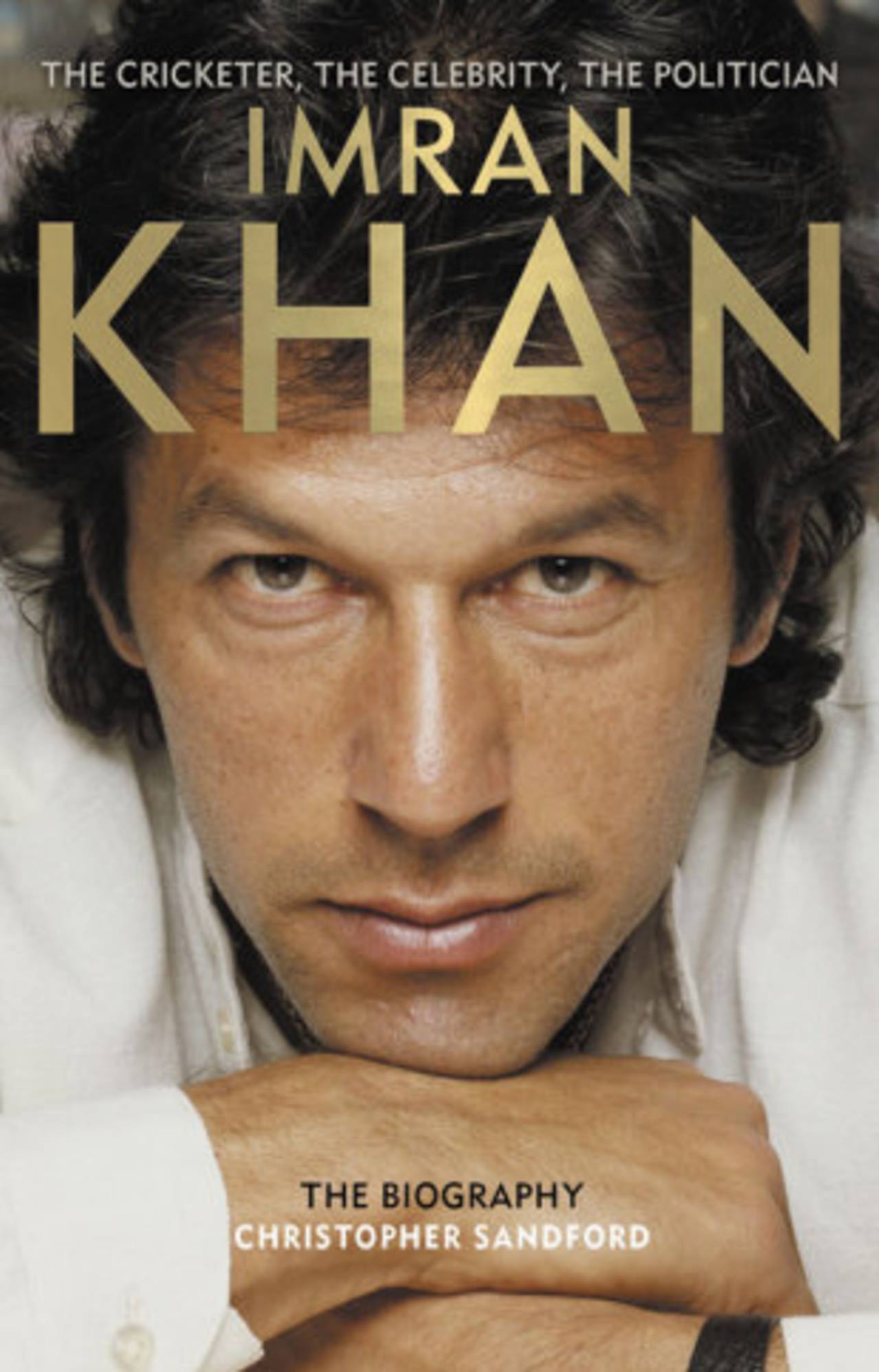Don't be fooled by what you read in the press and hear in the media. In Pakistan it was decided long ago that he can do no wrong. He took those 12 wickets
in Sydney, bowled that immortal afternoon spell of reverse swing
in Karachi, stared the West Indies down
on their home turf, led the cornered tigers
in 1992. In short, he ushered Pakistan cricket into its golden era. And then there is the man. As any number of women would say, just look at him.
You would think this makes Imran Khan an irresistible biography subject - and you'd be right. There are very few autobiographies of Pakistani cricketers, and fewer biographies. Imran has become the focus now of a second worthy book (after Ivo Tenant's Imran Khan, which appeared in 1994). The latest effort is by Christopher Sandford, a seasoned biographer who has previously tackled Godfrey Evans and Tom Graveney in addition to an august list from the world of music and film.
It is not strictly a cricket book, because Imran is not just a cricketer. There is naturally a great deal of cricket in it, but it is so seamlessly interwoven with general experiences of the human condition that this book can be read with equal enjoyment by die-hard fans and casual followers alike. Indeed, Imran transcended cricket in that many people with little interest in the game found themselves absorbed by his public image and personality. This book will appeal to them too.
Sandford succeeds in his essential biographical task, which is to conduct an enquiry into the making of the Imran Khan phenomenon. The research and sources are extensive, complemented by a solid bibliography. The prose, engaging and conversational throughout, is at times even riveting. Imran cooperated and is the first in a long list of acknowledgments.
Delicious nuggets are buried here and there. Asif Iqbal pockets serious cash from Kerry Packer at 100-1 odds in a World XI vs West Indies WSC match. Imran floors Zaheer Abbas with a bouncer in a county match against Gloucestershire after being egged on by his Sussex team-mates, and immediately loses his aggression to become full of empathy. A novice political reporter asks Imran the politician in the middle of a hysterical campaign rally if he has ever seen anything like it before, and Imran quietly answers that yes, he has.
Imran's utter focus and devotion to the given task at hand - be it cricket, politics, or social welfare - is well known and understood. But Sandford provides a nuanced picture of a shy yet restless soul brimming with self-belief, who is as concerned with substance and meaning as he is self-conscious about image and style.
Sandford provides a nuanced picture of a shy yet restless soul brimming with self-belief, who is as concerned with substance and meaning as he is self-conscious about image and style
Imran is vividly characterised for his fiercely independent Pathan streak, his bristling sensitivity towards any hint of colonial condescension, and his successful exorcism of Pakistan cricket's post-colonial inferiority complex. Yet paradoxically he is also totally at home in British culture. Sandford presents this as not merely a post-colonial but in fact a post-modern phenomenon: Imran does have complete comfort and ease in even the most rarefied levels of British society, but it is without any sense of superiority. The English, for their part, cannot have enough of him. An unstated subtext running throughout Sandford's narrative is that the English would love nothing more than to claim Imran as one of their own.
There are a few disappointments. In January 1977, Imran took 6 for 63 and 6 for 102 in Sydney to record Pakistan's first Test win in Australia. It marked him as the first Asian in the cadre of true fast bowlers, and the victory has been described by Javed Miandad - Imran's sometimes dysfunctional partner in the making of modern Pakistani cricket, as Sandford puts it - as a crucial watermark in the nation's cricket psyche. Sandford makes short work of this match, disposing of it in barely a paragraph. This is in contrast to page upon page devoted to obscure county games and to arcane proceedings such as Imran leaving Worcestershire and signing on with Sussex. Sandford does identify a watershed in Pakistan cricket, but places it two years later, in Karachi against India. But
Karachi 1978 was just a jingoistic celebration compared to Sydney 1977, which with all its symbolism was the true awakening.
As the book moves into Imran's contemporary life, you keep expecting to read a dissection of his failings, but it never comes. Sandford accepts that Imran is marginalised in Pakistan's national politics, but also argues that he is better off for it. Yes, he has an obstinate side, but that just makes him a formidable proposition. And true, he may not have succeeded as a broadcaster, but an obscure poll is cited, which ranks him as the game's fourth most popular celebrity commentator. These judgments finally reveal Sandford's hand as an admiring scribe. Not that you can blame him, of course. Everybody admires Imran Khan, and those that don't are lying. Indeed, in politics as in cricket, Imran receives a great deal of unspoken credit for insisting on stepping out of his comfort zone. Sandford's treatment has done him justice.
Imran Khan: The Cricketer, The Celebrity, The Politician Christopher Sandford
Harpercollins, 384pp, £20

